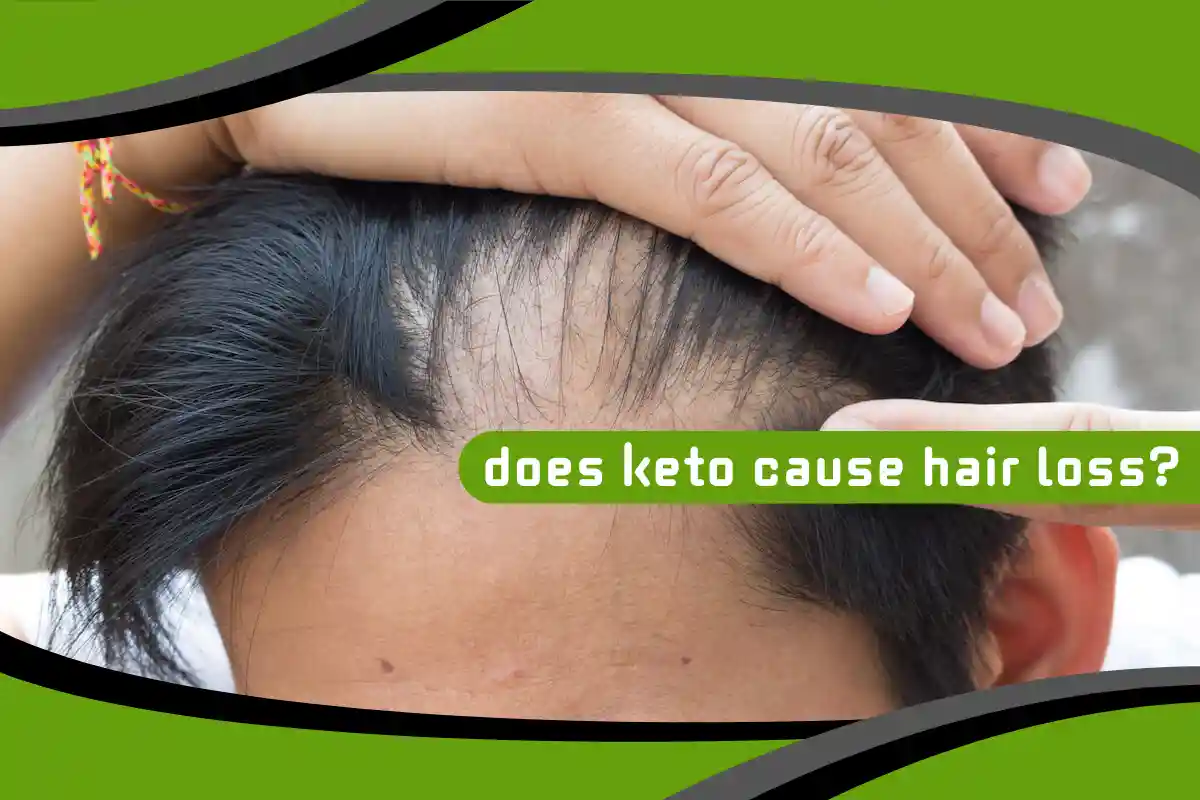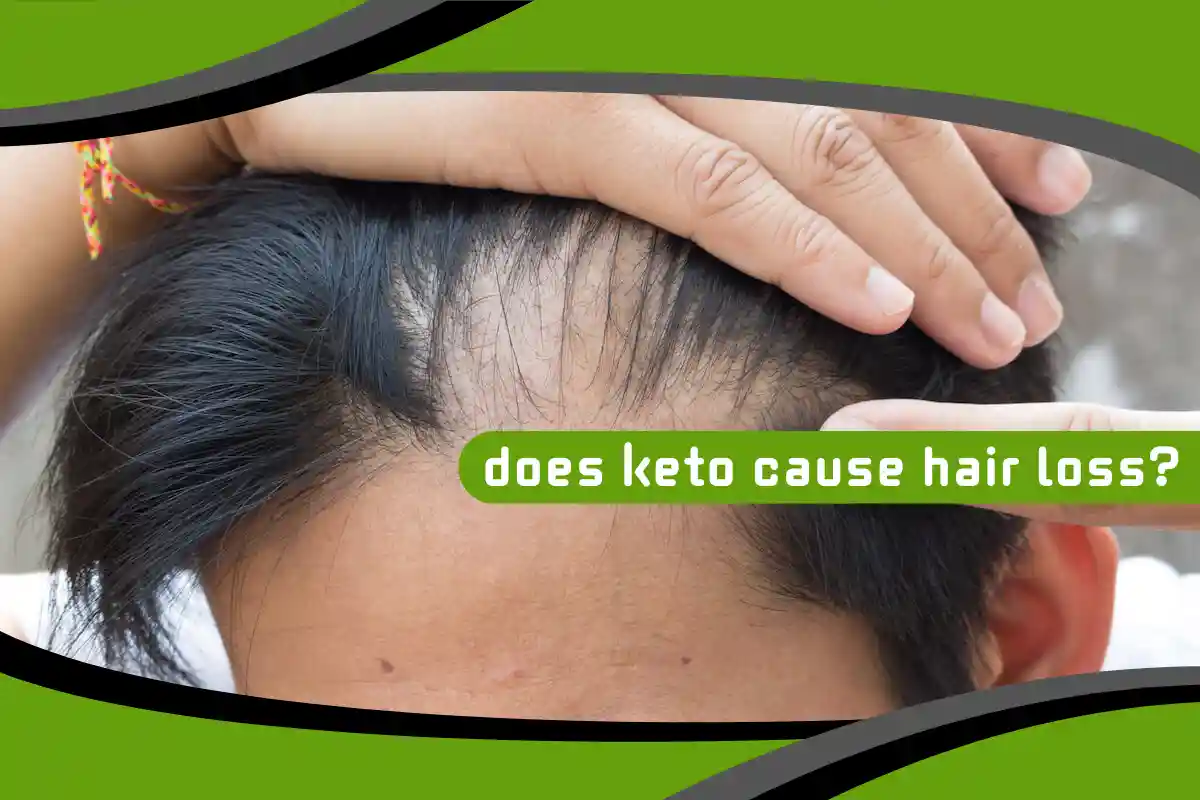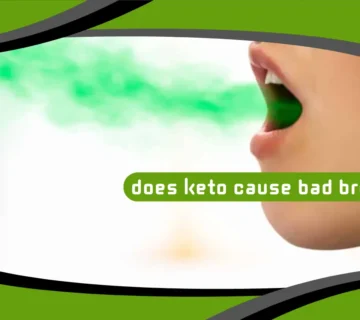The ketogenic diet, known for its high-fat, low-carb approach, has garnered significant attention in recent years for its ability to promote weight loss, increase energy levels, and manage various health conditions. However, despite its many benefits, some individuals report experiencing hair loss during their time on a keto diet. This has raised concerns about whether keto can cause hair thinning or shedding. In this article, we will explore the potential link between the keto diet and hair loss, shedding light on the possible causes and ways to prevent it.

What is the Ketogenic Diet?
To understand the relationship between the ketogenic diet and hair loss, it’s essential to first define the keto diet. The ketogenic diet is a high-fat, moderate-protein, and low-carbohydrate diet that forces the body into a state of ketosis, where it burns fat for energy instead of carbohydrates. While this shift can lead to rapid weight loss and other health benefits, the diet is not without its side effects.
Why Do People Experience Hair Loss on Keto?
Hair loss on the keto diet is often attributed to several factors, including nutrient deficiencies, stress, and hormonal imbalances. The rapid changes in metabolism and the restriction of certain food groups can contribute to these issues, leading to temporary hair shedding in some individuals.
The Role of Nutritional Deficiencies in Hair Loss
One of the primary reasons people experience hair loss while following the keto diet is a lack of essential nutrients. A strict keto diet may lead to deficiencies in vitamins and minerals, such as biotin, zinc, and iron, all of which are crucial for healthy hair growth. Ensuring a balanced intake of these nutrients is vital to maintaining hair health on the keto diet.
Watch also: Why Am I Not Losing Weight on Keto? 20 Expert Reasons You Might Be Stuck and How to Fix Them
The Impact of Rapid Weight Loss on Hair Health
Rapid weight loss, a common side effect of the ketogenic diet, can trigger a condition known as telogen effluvium. This type of hair loss occurs when the body experiences a shock due to sudden changes in weight or nutrition. While temporary, telogen effluvium can cause significant hair shedding, which may be particularly noticeable during the initial phases of the keto diet.
How Hormonal Changes Affect Hair Growth
Hormonal changes are another factor that may contribute to hair loss on the keto diet. Ketosis can influence hormone levels, including thyroid and insulin hormones, which play a significant role in hair growth. Any imbalances in these hormones can disrupt the hair growth cycle, leading to thinning or shedding of hair.
The Stress Connection: Is Keto Inducing Stress?
Dietary changes, particularly those as drastic as the ketogenic diet, can lead to increased stress levels. Stress is a well-known contributor to hair loss, and the body may react to the stresses associated with adapting to a new eating plan by shedding hair. Psychological stress can also worsen the effects of other triggers, such as nutritional deficiencies and hormonal imbalances.
The Ketogenic Diet and Its Effects on the Thyroid
Thyroid function plays a crucial role in hair health. The ketogenic diet may impact thyroid hormone production, especially in individuals who already have thyroid imbalances. A decrease in thyroid hormones can slow down the hair growth process and lead to hair thinning over time.
How the Body Adapts to a Low-Carb Diet
When transitioning to a low-carb diet like keto, the body undergoes a significant shift in its energy source. This sudden change can cause temporary disruptions in various bodily functions, including hair growth. While the body adjusts, it is not uncommon for hair to shed more than usual, though it typically regrows once the body stabilizes.
Is Hair Loss on Keto Permanent?
In most cases, hair loss experienced on the keto diet is not permanent. Once the body adjusts to the new dietary regimen and nutritional deficiencies are addressed, hair growth typically resumes. However, in rare cases, prolonged hair loss may occur, requiring medical intervention.
The Importance of Balanced Keto Nutrition
A well-balanced keto diet is essential for maintaining overall health, including hair health. Ensuring adequate intake of vitamins, minerals, and healthy fats can help prevent nutritional deficiencies that may contribute to hair loss. Including a variety of nutrient-dense foods, such as leafy greens, avocados, and fatty fish, is key to supporting hair growth on keto.
Watch also: What to Do If You Cheat on Keto: A Complete Recovery Guide
Supplementing with Biotin, Zinc, and Other Hair-Supporting Nutrients
Supplements may help prevent hair loss by filling in any nutritional gaps that occur on a keto diet. Biotin, zinc, and collagen are popular supplements known for supporting hair health. However, it’s important to consult with a healthcare provider before adding supplements to your routine to avoid excessive intake.
The Role of Hydration in Hair Health on Keto
Hydration is often overlooked when discussing the ketogenic diet’s effects on hair health. Dehydration, which can occur due to the diuretic effects of keto, may exacerbate hair loss. Ensuring adequate fluid intake can help maintain healthy hair and support the body’s overall functioning while on keto.
How to Manage Stress While on Keto
Managing stress is crucial for preventing hair loss on the keto diet. Incorporating stress-reducing practices such as yoga, meditation, and adequate sleep can help lower cortisol levels, which may otherwise contribute to hair shedding. It’s essential to find a balance between maintaining a healthy diet and managing daily stress.
How to Prevent Hair Loss on Keto
There are several strategies for preventing hair loss while following a keto diet. Prioritize a well-rounded, nutrient-rich eating plan, stay hydrated, manage stress levels, and consider adding supplements to support hair health. Additionally, make sure to consult with a healthcare professional to address any underlying health issues that may be contributing to hair loss.
Are Certain People More Likely to Experience Hair Loss on Keto?
Some individuals may be more prone to hair loss on keto than others. People with pre-existing conditions, such as thyroid imbalances or those with a family history of hair loss, may be more susceptible. Additionally, those who experience rapid weight loss or who have a history of stress-related hair shedding may be at higher risk.
Keto-Induced Hair Loss vs. Other Causes of Hair Loss
It’s important to differentiate between hair loss caused by the ketogenic diet and hair loss due to other factors. Common causes of hair loss include genetics, medical conditions, medications, and poor nutrition. Consulting with a healthcare provider can help determine the root cause of hair thinning.
When to Seek Professional Help for Hair Loss on Keto
If hair loss persists or becomes severe, it’s advisable to seek professional help. A healthcare provider or dermatologist can assess the situation and recommend potential treatments, including adjustments to the diet, medications, or other interventions to promote hair regrowth.
Can the Keto Diet Actually Improve Hair Health?
While keto may cause temporary hair loss for some individuals, it is also possible for the diet to improve hair health in the long run. The increased intake of healthy fats, vitamins, and minerals can support hair growth and prevent hair thinning, especially if deficiencies are addressed early on.
Key Takeaways: Does Keto Cause Hair Loss?
While some individuals may experience hair loss on the keto diet, this is typically temporary and related to factors such as rapid weight loss, nutritional deficiencies, and hormonal changes. By maintaining a balanced, nutrient-dense diet and managing stress, individuals can minimize the risk of hair loss while reaping the benefits of the ketogenic lifestyle. If hair loss persists, it’s important to consult with a healthcare professional to rule out other potential causes.
Watch also: How to Get Back Into Ketosis After a Cheat Day: Expert Tips to Restart Fat Burning Fast




No comment